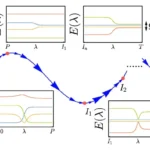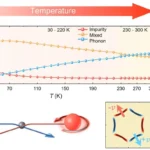A recent study published in the Journal of the American College of Cardiology reveals that bariatric surgery proves to be a more effective approach in managing hypertension, or high blood pressure, in individuals with obesity compared to relying solely on antihypertensive medication. The findings shed light on the significant impact of addressing obesity in mitigating cardiovascular risk factors, particularly hypertension, which is prevalent among a considerable portion of the U.S. adult population.
Led by Dr. Carlos Aurelio Schiavon, a surgeon specializing in bariatric surgery at Heart Hospital (HCor) and BP Hospital in Sao Paulo, the study highlights the critical role of treating obesity in lowering high blood pressure, a known risk factor for cardiovascular diseases, including heart attack, stroke, and heart failure.
Despite the availability of new medications for obesity treatment, long-term adherence to medication remains challenging, prompting researchers to explore bariatric surgery as a more sustainable solution for obesity management and subsequent hypertension control.
The study, known as the GATEWAY trial, enrolled 100 participants with a body mass index (BMI) of approximately 36.9Kg/m2 and hypertension requiring at least two medications. Participants were divided into two medical groups: one receiving Roux-en-Y gastric bypass surgery in addition to medical therapy and the other receiving medical therapy alone. The primary outcome assessed was reducing at least 30% in antihypertensive medications while maintaining blood pressure levels below 140/90 mmHg at the five-year mark.
The results revealed significant benefits for individuals who underwent bariatric surgery. After five years, these participants demonstrated a substantial decrease in BMI compared to those on medical therapy alone. Moreover, they experienced an 80.7% reduction in medications required for hypertension management while achieving a hypertension remission rate of 46.9%—a stark contrast to the 13.7% reduction and 2.4% remission rate observed in the medication-only group.
Despite the study’s limitations, including its single-center design and small sample size, the findings underscore the importance of addressing obesity as a fundamental approach to reducing hypertension rates.
In an accompanying editorial comment, Dr. Michael Hall emphasizes the need for further research to delineate optimal treatment pathways for obesity-related hypertension, including the threshold and timing for bariatric surgery and comparative studies of various treatment modalities.




